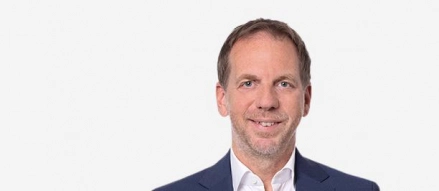
Why cultural change and digital transformation must go hand in hand
Carsten, you help drive innovation and change at Mazars in Germany. What has been the biggest challenge you have faced?
The biggest challenge I have encountered is without a doubt the so called ‘comfort zone’. It can be very difficult to drive change and push people outside of their comfort zone. The most dangerous aspect of the comfort zone is that people often stop questioning themselves and the established processes. Not only does this cause immobility, it also means that people become very inward focused. This is a big mistake, as in an increasingly porous world where all sectors and professions are being impacted by change, looking outside of the organisation and listening to new ideas is essential. The comfort zone is not necessarily linked to age, it is a question of mindset.
And how do you overcome such a deeply anchored pain point?
It all boils down to one thing: culture. When it comes to innovation, the error many organisations make is to try to transform their business, without transforming their culture. The culture of an organisation dictates how individuals act to achieve the company’s strategic objectives.
6 TIPS FOR A DIGITAL CULTURE CHANGE
1. Listen bottom-up
2. Embrace shared leadership
3. See it as a journey and an investment, not as a one-off project and a cost
4. Create the right environment for people to dedicate time and resources
5. Work on small achievable flagship projects
6. Make failure possible
It is extremely important to listen bottom-up. Allow for a diverse set of talent from outside the institutional class to participate in projects, not only in the operational phase, but right at the start in the design phase. Breaking down traditional hierarchal structures will help build an environment of confidence and trust. In our organisation, we have witnessed many changes in our governance structures, allowing for shared leadershipamong a much more diverse set of people with different types of expertise and backgrounds. Our leadership structures are changing to represent more perspectives, and this is widening our horizons.
Digital transformation takes time, it is not a one-off project. In a business where we see performance against chargeable costs, we must create the right environmentfor people to be able to invest time in transformational projects. Agility and flexible working conditions are key parameters for people to get involved. For example, we have institutionalised international mobility exchange programmes where we send our “Digital Heroes” – young professionals that are leading our digital transformation – to the Mazars Group innovation team for several months. Creating a culture of exchange and best-practice sharing is key to the successful scaling of digital transformation and enables performance to be measured against contribution.
And remember, it is better to focus on small achievable projects. These flagship wins are essential in building momentum. However, do allow enough room for failure. Failure and trial-and-error are key parameters for success when driving transformational projects.
What concrete initiative have you implemented to stimulate a change of culture within your organisation?
When we started the process some 18 months ago, we counted over 240 digital projects, but no coordination. We have implemented a series of “Digital Runners”, short life span achievable projects that motivate people because they actually happen. Everyone, from all teams and all levels of seniority can participate in them. For example, one of the Digital Runners was to implement a sophisticated collaborative tool. This has completely changed the way we communicate together. We now avoid long email exchanges, and it has also allowed people from different departments to get to know each other and work on projects together.
By learning to work together and collaborate with each other, we were able to identify Digital Heroes within the company to lead our digital transformation. And I really do believe they have the power to change the business. What is particularly exciting, is that we are not buying expertise from outside the organisation, we are building our expertise internally.
In the Berlin office, we have recently opened a lab – a space where both staff and clients can meet to exchange and work in a modern working environment. Partners share space with juniors, developing projects hand in hand. This has lead to a situation where hierarchy is less important and has been replaced by a focus on content and forward looking projects.
To summarise, the hierarchical class within our organisation has become accessible, and the creative class has been invited to the the table to shake our governance and to re-think our organisation. By making our internal digital transformation a holistic movement and not only a project limited in time, we have been able to change our mindsets and our culture. All hands on deck!
This paper is part of the #InnovatorsAtMazars series. If you would like to learn more about this campaign, please visit our website.
